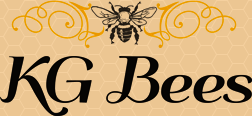Honeybee Facts
- Honeybees are not native to the USA. They are European in origin, and were brought to North America by the early settlers
- Honeybees are not aggressive by nature, and will not sting unless protecting their hive from an intruder or are unduly provoked
- Honeybees represent a highly organized society, with various bees having very specific roles during their lifetime: e.g. nurses, guards, grocers, housekeepers, construction workers, royal attendants, undertakers, foragers, etc.
- The queen bee can live for several years. Worker bees live for 6 weeks during the busy summer
- The practice of honey collection and beekeeping dates back to the stone-age, as evidenced by cave paintings
- Although quite inactive during the winter, the honeybee survives the winter months by clustering for warmth. By self-regulating the internal temperature of the cluster, the bees maintain 93 degrees Fahrenheit in the center of the winter cluster (regardless of the outside temperature)
Help save the honeybee!
Bees need a variety of trees, especially hardwood trees which bloom at different times. Bees are subject to various diseases and have had their numbers drastically reduced by Colony Collapse Disease. We want to promote the importance of the role of the honeybee and preservation of this amazing creature. In the last two decades, the number of colonies of honeybees have reduced by more than half, creating a bee epidemic. Here are some simple things you can do to help save the honey bees:
- Have a Bee Friendly Garden - Plants help bees by providing nectar. Bees convert nectar into honey. Grow a small garden in your backyard to help the bees. To make it bee friendly, grow native and local plants. Local/native plants help attracting the local bees. Plant diverse plants to attract different types of bees to your garden.
- Avoid Pesticides - Although we don't understand why bee colonies are disappearing, researchers believe that wide use of pesticides/insecticides play a major role in the bee disappearance. Therefore, use natural methods to control pests in your garden.
- Don't Kill The Bees - If your garden is attracting a bee swarm and you are concerned that they might sting, don't kill them. Contact your local beekeeping association, they can come to your place and safely remove the bees.
- Shop Local - Buy fruits, vegetables, and honey from local stores. This helps local farmers to sustain crops and flowers and beekeepers to have more hives and raise more bees for honey production.



